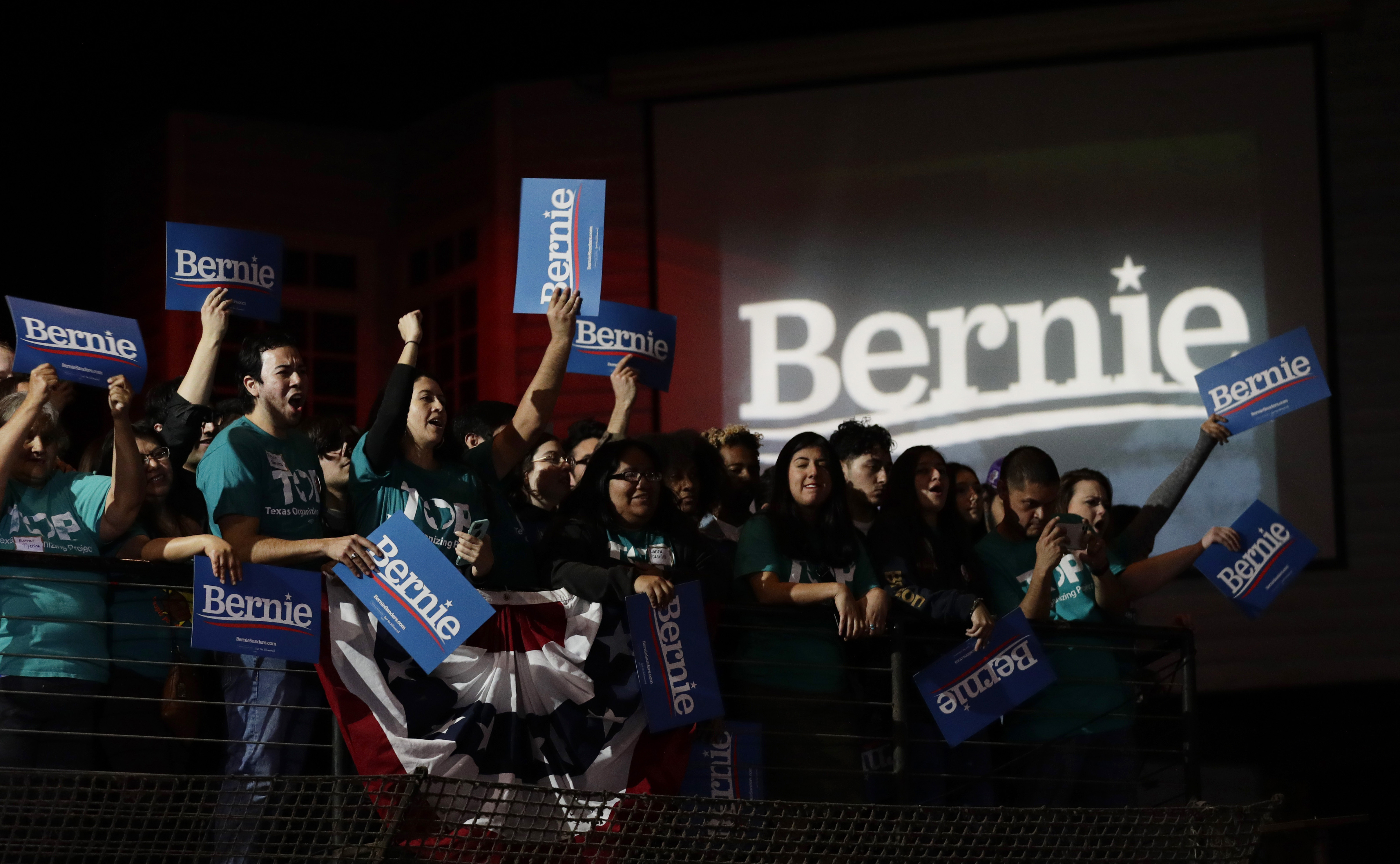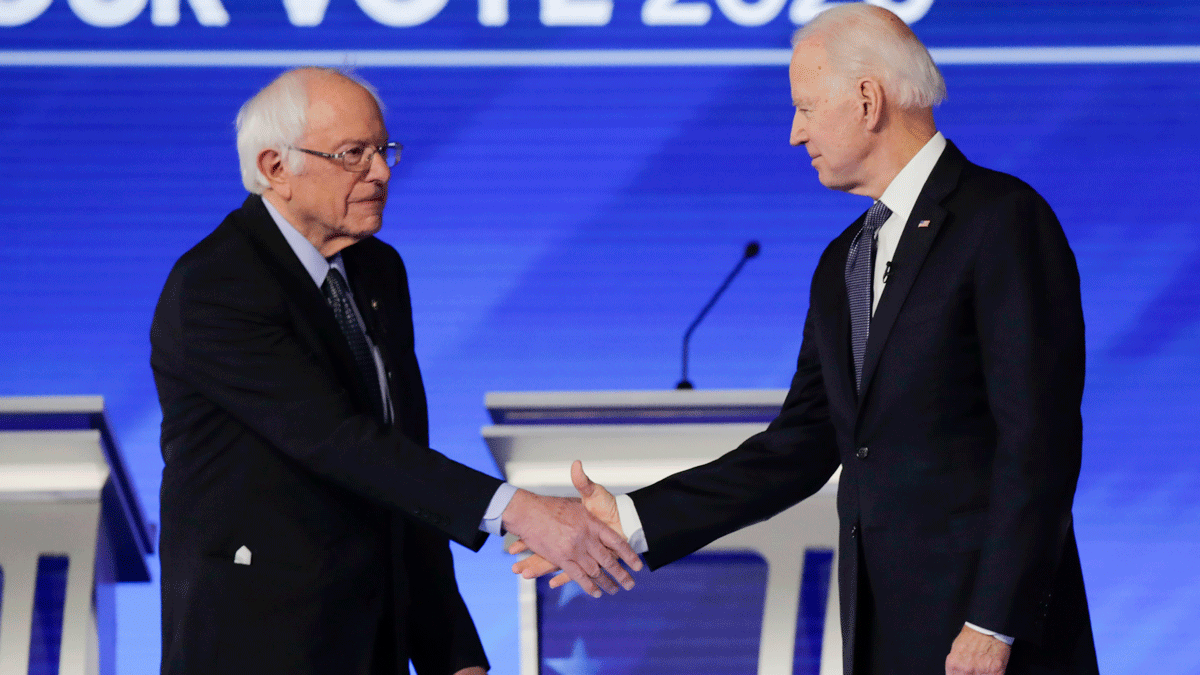Mike Bloomberg's long history of philanthropic and political spending has given him a sprawling network of supporters that is paying off as he runs for president.
An Associated Press review of Bloomberg's giving shows that, for years, people have relied on his money to win elections, change laws, fund research and pay for signature municipal and education programs.
Many of those beneficiaries and their associates are endorsing, or are open to, Bloomberg’s campaign, giving the former Republican a base of Democratic Party support that he might lack if he weren't one of the world’s richest men.
Bloomberg's supporters include members of Congress who were elected with millions of dollars of his help, mayors who have attended his prestigious training program at Harvard University, and gun control and environmental activists who admire his commitments to their causes.
Get South Florida local news, weather forecasts and entertainment stories to your inbox. Sign up for NBC South Florida newsletters.
"He had the wealth to give away money for years to build friends, to build political allies, to build relationships, in ways that the average American doesn't have, can't do. That's a huge advantage," said Paul S. Ryan, a vice president at Common Cause, a government watchdog group.
His rivals for the Democratic presidential nomination have accused Bloomberg of trying to buy the election by spending $400 million of his fortune to blanket people with ads ahead of Super Tuesday on March 3, when voters in 14 states will cast their ballots.
But that's a fraction of the spending of prior years that laid the ground work for Bloomberg’s campaign and provided him validators to defend his record against allegations of racism and sexism. It’s helped him rise to the field's top tier while skipping the first four states and participating in a single debate in which he struggled through blistering attacks from his rivals.
Bloomberg has long said he wants to give away nearly all of his fortune before he dies, and wants to use the money to tackle big problems that government has failed to solve.
Critics say the former mayor's vast spending is unhealthy in a democracy even though they may support his causes.
"It's about the principle of someone with great wealth distorting certain debates or certain social movements or influencing the direction of actual political elections," said Megan Tompkins-Stange, a University of Michigan professor who studies how elite philanthropic foundations influence public policy. She said that "no one person should have that much influence in the public sphere."
The AP review documented $1.65 billion in grants that Bloomberg’s New York-based Bloomberg Family Foundation doled out to hundreds of cities, universities, cultural groups and global institutions from 2014 through 2018, the last year in which they have been itemized in tax filings.
From Boston to Baltimore and Anchorage to Arlington, the money has helped fight climate change, championed a range of public health initiatives, promoted new programs in cities and schools and helped scores of arts and cultural institutions.
Decision 2020
The total given by Bloomberg Philanthropies, which encompasses all of the former mayor's giving, through his foundation, his company and personally, is even greater. Bloomberg Philanthropies has said that from 2014 through 2018 it distributed more than $2.9 billion. More than $1 billion of that giving need not be disclosed by law.
Then there's the record $3.3 billion that Bloomberg Philanthropies says it distributed in 2019 as Mike Bloomberg prepared to run for president, including a $1.8 billion gift to his alma mater, Johns Hopkins University in Baltimore, that will boost financial aid. Those gifts may not even be partially disclosed until after the presidential election.
The AP identified dozens of current and former mayors who have publicly endorsed Bloomberg’s campaign after benefiting in one of several ways from his charitable giving. At least 20 attended the Bloomberg Harvard City Leadership Initiative, a one-year training program for municipal leaders that his foundation sponsors.
Several others have led cities that have received programming grants from Bloomberg Philanthropies or, in at least two cases, been paid to work as an adviser or board member.
Former Philadelphia Mayor Michael Nutter has been a high-profile surrogate for Bloomberg’s campaign, defending him against allegations of racism that stem from the stop-and-frisk policy in New York that disproportionately targeted young black men.
Nutter’s consulting firm was paid $45,000 in January by the campaign and is owed $4,000 more, a campaign disclosure shows. Nutter had previously been a paid adviser for What Works Cities, a Bloomberg Philanthropies initiative that promotes municipal innovation.
Bloomberg's campaign said only a small percentage of mayors whose cities he has helped are supporting him.
"But if an elected official has seen up close how hard Mike works to find solutions to America’s toughest problems and thinks that’s exactly what we need in the White House, we think that’s a pretty good reason to support someone," campaign spokeswoman Rachel Nagler said.
The AP’s review tracked more than $150 million that Bloomberg gave to dozens of candidates and political groups since 2014. That money helped Democrats take control of the U.S. House in 2018, pass laws and referendums requiring universal background checks on gun sales in key states and advocate for higher soda and tobacco taxes in some cities and states.
Bloomberg’s super PAC in 2018 spent millions running ads praising Democratic candidates and attacking their Republican opponents, helping win 21 of 24 races that it got involved in. At least 16 Democratic members of Congress have endorsed Bloomberg for president, including four whose candidacies were direct beneficiaries of his PAC spending.
Several others indirectly benefited from Bloomberg’s generosity because their campaigns were supported by one or more of the key Democratic Party-aligned groups to which he gave millions of dollars. Those groups include Emily’s List, Planned Parenthood and the League of Conservation Voters.
Who’s Running for President in 2020?
The field of Democratic 2020 presidential candidates is packed, though some have already dropped out. Those still in the race include a former vice president, senators, businessmen, House members, a former governor and a mayor. As for the GOP, a former governor and former congressman are vying to challenge President Trump.
Click the photos to learn more
Updated Nov. 20, 2019
Note: Incorrect information about Michael Bennet’s cancer diagnosis and titles for Joe Sestak and William Weld have been revised on July 29, 2019, 3:17 p.m. ET.
Credit: Jo Bruni, Emma Barnett, Asher Klein, Dan Macht, Kelly Zegers / NBC; Photos: Getty Images
Bloomberg’s spending has continued in the early weeks of his presidential campaign. He gave $10 million to a group supporting the House Democrats, $5 million to a voting rights group and smaller donations to several state Democratic Party organizations.
"He's like a new machine. Rather than based in the party, it's based on his immense and vast wealth," said Douglas Muzzio, a professor who studies politics at Baruch College in New York City.




